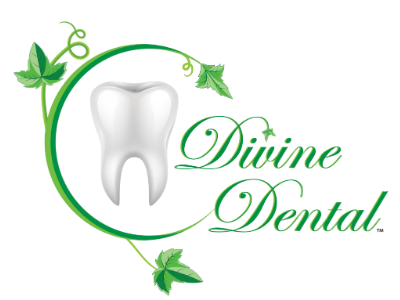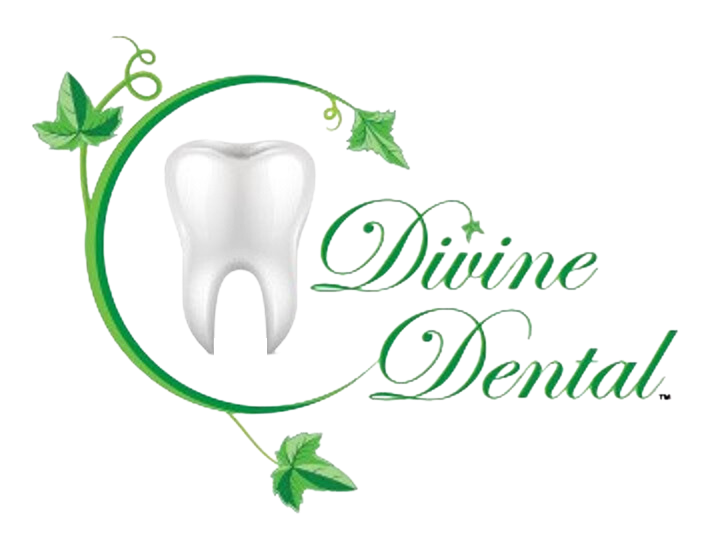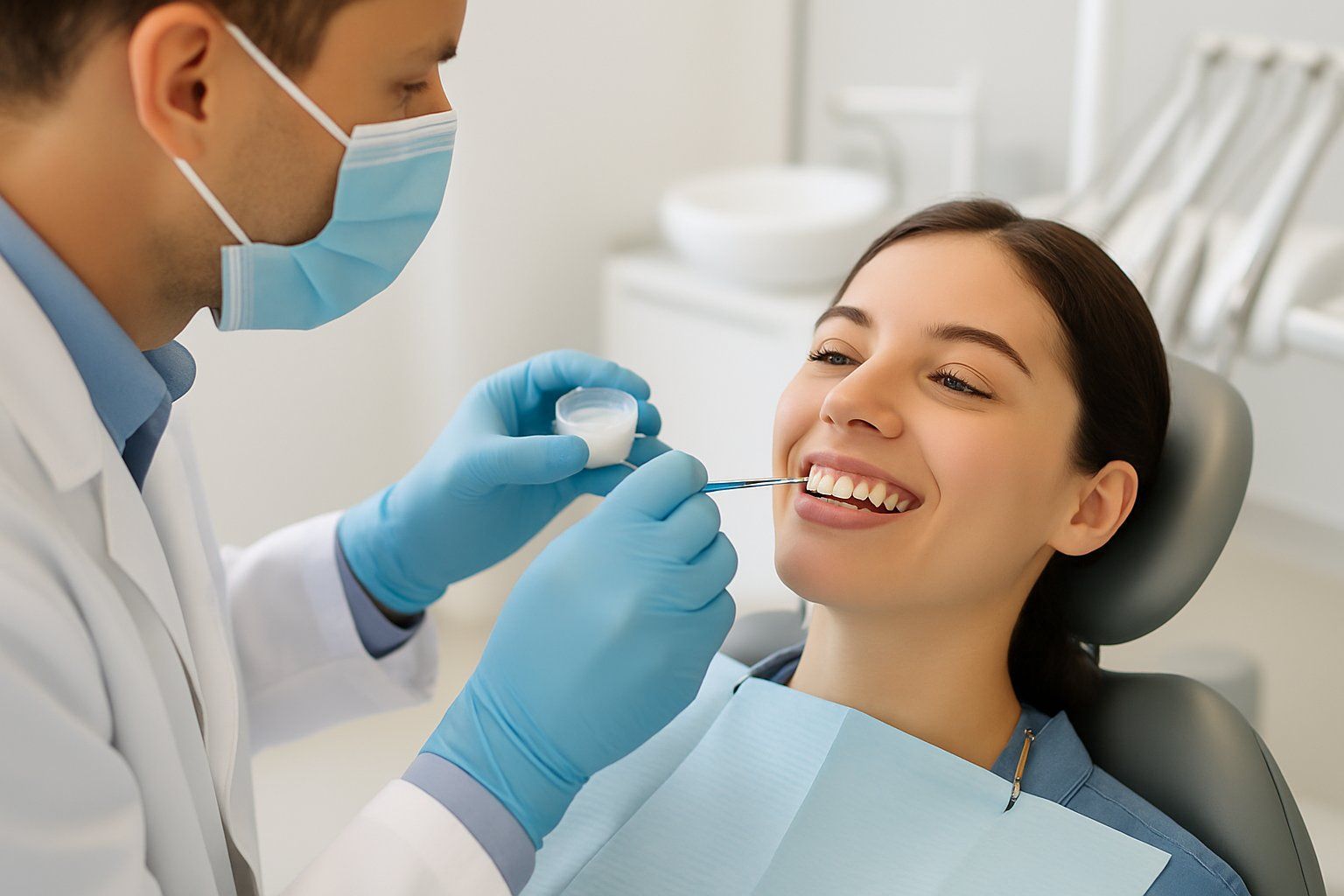The Importance of Regular Dental Check-ups: Your Oral Health Roadmap
Regular dental check-ups play a crucial role in maintaining optimal dental health. These routine visits to the dentist help prevent oral diseases such as gum disease and tooth decay, as well as detect conditions like oral cancer at an early stage. Gum disease and tooth decay are common oral health issues that can lead to the loss of natural teeth if left untreated. Regular check-ups allow dental professionals to identify and treat these problems before they progress.
Additionally, oral cancer can be life-threatening if not detected early. Regular dental visits provide an opportunity for dentists to carefully examine the mouth for signs of this disease. By prioritizing regular dental check-ups, individuals can significantly improve their oral health and overall well-being.
Why Dental Check-ups are Important
Regular dental check-ups play a crucial role in maintaining optimal oral health. These check-ups, typically recommended every six months, are essential for preventing dental issues, detecting early signs of oral diseases, and maintaining natural teeth. Dental visits enable dental professionals to assess oral hygiene practices, identify and treat gum disease, and address any oral health concerns in a timely manner. Periodontal diseases and other oral health issues, if left untreated, can lead to tooth decay, tooth loss, and even chronic diseases like heart disease.
Moreover, regular dental check-ups include professional teeth cleaning, which effectively remove plaque and tartar buildup, contributing to a healthy mouth. Dentists can also screen for oral cancer, a serious condition that, when detected early, can significantly improve the outcome. Expert advice and guidance on oral hygiene routines and healthy habits are provided during these visits, ensuring that individuals are equipped with the knowledge and tools needed for proper oral care.
What Happens During a Check-up
Regular dental check-ups play a crucial role in maintaining good oral health and preventing potential issues. During a dental check-up, various procedures and examinations are typically performed to ensure that your teeth and gums are in optimal condition.
The dentist will conduct a thorough examination of your teeth, gums, and mouth. This examination involves inspecting your teeth for any signs of decay or cavities. The dentist will also look for any signs of gum disease, such as redness, inflammation, or bleeding gums. Additionally, the examination will include checking for any abnormalities or oral health issues in the mouth, including signs of oral cancer.
To detect any hidden problems, X-rays may also be taken. X-rays provide a comprehensive view of your oral health by capturing detailed images of the teeth, jawbone, and surrounding structures. This helps the dentist identify any underlying issues that are not visible during a visual examination, such as infections, impacted teeth, or bone loss.
By undergoing a dental check-up, you can address any oral health issues in their early stages, which is essential for preventing more serious dental problems in the future. Regular check-ups allow dental professionals to identify and treat issues like tooth decay, gum disease, and oral infections, promoting a healthy mouth and preserving natural teeth.
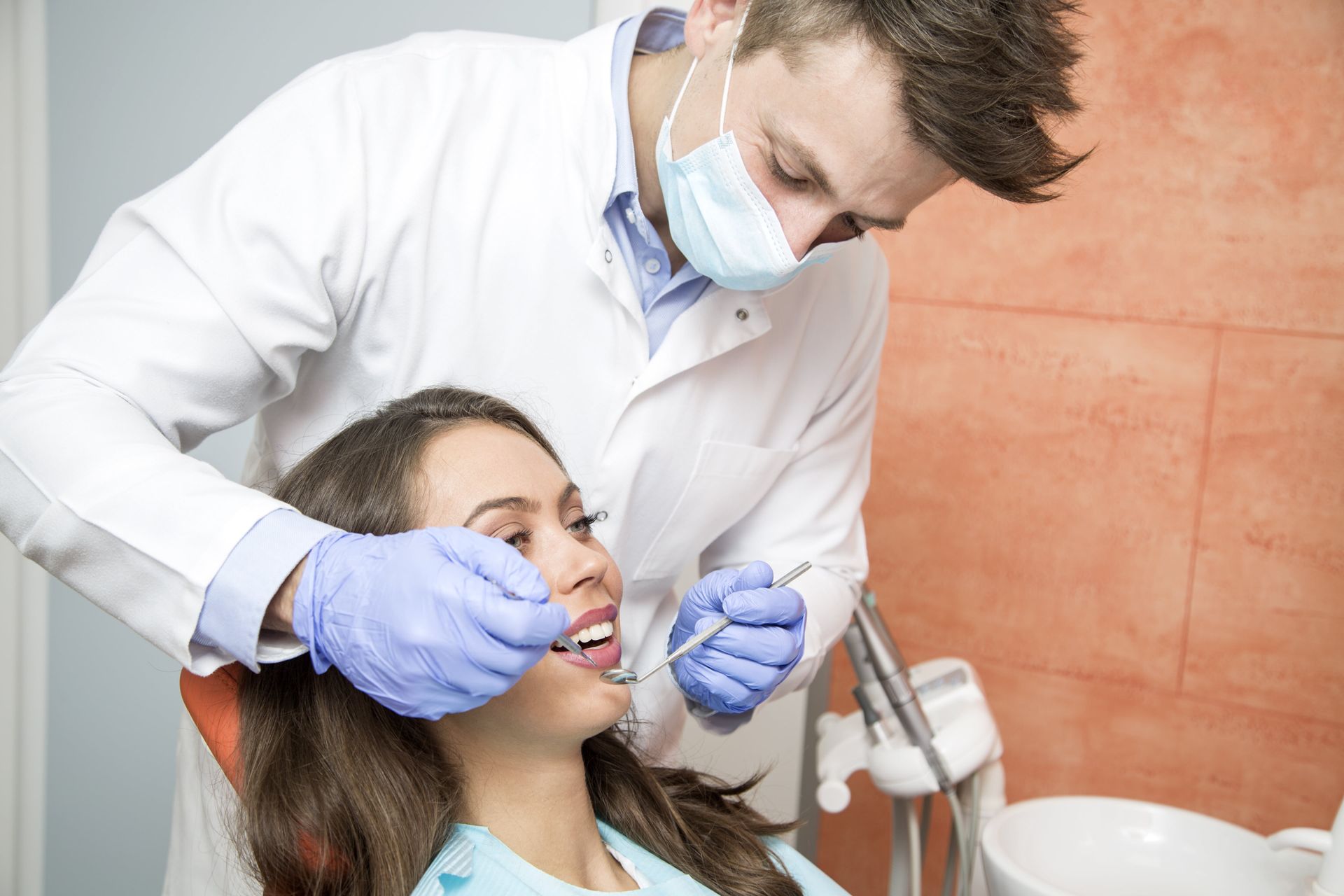
The Benefits of Regular Dental Check-ups
Regular dental check-ups offer a multitude of benefits for maintaining optimal oral health. From detecting early signs of dental issues to preventing more serious problems, these check-ups play a vital role in keeping our teeth and gums healthy. During a check-up, dentists conduct thorough examinations, looking for any signs of decay, gum disease, or abnormalities in the mouth.
X-rays may also be taken to detect hidden problems. By addressing oral health issues in their early stages, check-ups help prevent the progression of dental problems and preserve our natural teeth. Furthermore, dental check-ups can identify and treat oral infections, promote a healthy mouth, and even detect signs of oral cancer. With regular visits to the dentist, we can maintain a healthy smile and improve our overall quality of life.
Improved Oral Hygiene
Improving oral hygiene is crucial for maintaining healthy teeth and gums. By following a few simple steps, you can achieve better oral health and prevent common dental issues.
First and foremost, it is important to brush your teeth twice a day using the right toothbrush and toothpaste. Choose a toothbrush with soft bristles and a comfortable grip. Brushing for two minutes helps remove plaque and bacteria that can cause tooth decay and gum disease.
In addition to regular brushing, daily flossing is essential to reach areas that a toothbrush cannot. Flossing removes plaque and food debris between the teeth and along the gumline, reducing the risk of cavities and gum inflammation.
A balanced diet is a key factor in improving oral health. Consuming foods rich in calcium, such as dairy products, helps strengthen teeth. Vitamin C-rich foods, like citrus fruits and leafy greens, promote healthy gums and tissue repair.
While regular dental check-ups are vital, maintaining good oral hygiene between visits is equally important. This includes brushing and flossing diligently, avoiding tobacco products, and limiting sugar intake.
Early Detection of Diseases and Conditions
Regular dental check-ups play a crucial role in early detection of various diseases and conditions that can affect oral health. These routine visits not only help maintain healthy teeth and gums but also serve as a preventive measure against potential complications.
Some common diseases and conditions that can be detected early through regular dental check-ups include oral cancer, gum disease, dental caries (tooth decay), and periodontal disease.
Early detection of these conditions is vital because it allows for timely intervention and treatment. For instance, detecting oral cancer at an early stage significantly improves the chances of successful treatment and survival. Similarly, identifying gum disease or periodontal disease early on can prevent further progression and potential tooth loss.
Regular dental check-ups enable dentists to thoroughly examine the oral cavity, identify any abnormalities or signs of disease, and provide appropriate treatment or referral as needed. This early detection not only prevents further complications but can also lead to less invasive and more effective treatment outcomes.
Reduced Risk of Tooth Loss or Decay
Regular dental check-ups play a crucial role in reducing the risk of tooth loss or decay. These check-ups help identify and treat early signs of tooth decay, gum disease, and other oral health issues, ensuring the maintenance of healthy teeth and gums.
During a dental check-up, the dentist thoroughly examines the teeth and gums for any signs of decay or disease. Early detection of these issues allows for timely intervention and treatment. For example, identifying tooth decay before it progresses can prevent further damage to the tooth structure and potential tooth loss in the future.
In addition to detecting oral health problems, preventive measures such as dental cleanings are also provided during check-ups. Dental cleanings remove plaque and tartar buildup, which can contribute to tooth decay and gum disease if left untreated. Furthermore, dental professionals provide expert advice on maintaining proper oral hygiene and adopting healthy habits to prevent future issues.
By attending regular dental check-ups, individuals can significantly reduce the risk of tooth loss or decay. These check-ups ensure early detection of oral health problems, prompt treatment, and the implementation of preventive measures. Taking these proactive steps towards oral healthcare contributes to maintaining a healthy, beautiful smile for a lifetime.
Improved Overall Health and Wellbeing
Regular dental check-ups play a crucial role in improving overall health and wellbeing. Good oral health is not only essential for a beautiful smile but also for preventing the development of chronic diseases.
By detecting oral health issues during check-ups, such as tooth decay and gum disease, timely intervention and treatment can be initiated. These problems, if left untreated, can contribute to the development of chronic diseases such as heart disease and diabetes.
Maintaining a healthy mouth is directly linked to overall health. Gum disease, for instance, has been associated with an increased risk of cardiovascular diseases. Additionally, gum infections can negatively impact blood sugar levels in individuals with diabetes.
Furthermore, a healthy mouth promotes a higher quality of life. It enables individuals to chew food properly, improving digestion and overall nutrition. It also enhances speech and self-confidence, positively impacting mental and emotional wellbeing.

Tips for Maintaining Good Oral Health Between Check-ups
In addition to regular dental check-ups, there are several important habits and practices that individuals can incorporate into their daily lives to maintain good oral health.
Brush Twice Daily with the Right Toothbrush and Toothpaste
Brushing your teeth twice daily with the right toothbrush and toothpaste is crucial for maintaining good oral hygiene. Not only does it give you a sparkling smile, but it also helps prevent various oral health issues.
Brushing your teeth twice a day, in the morning and before bed, is recommended by dental professionals. This frequency ensures that plaque, a sticky film of bacteria, is consistently removed from your teeth. Plaque can lead to tooth decay, gum disease, and other oral health problems if not removed regularly.
When brushing, it's important to use the proper technique. Hold your toothbrush at a 45-degree angle against your gums, and gently move it in a circular motion. Make sure to cover all surfaces of your teeth and gums, including the hard-to-reach areas at the back. This thorough cleaning helps remove food particles, bacteria, and plaque.
Choosing the right toothbrush and toothpaste is equally important. There are various types of toothbrushes available, such as manual, electric, and sonic. Consider factors like bristle type, size, and handle comfort when selecting a toothbrush. As for toothpaste, look for one that contains fluoride and addresses your specific oral health needs, such as sensitivity or gum health.
Regular brushing with the right toothbrush and toothpaste plays a significant role in maintaining good oral health. It helps prevent tooth decay, gum disease, bad breath, and other oral health issues. So, make brushing twice daily a part of your oral hygiene routine for a healthy smile and overall well-being.
Floss Daily to Remove Plaque and Food Debris From Between Teeth
Flossing is an essential part of maintaining good oral hygiene. While brushing helps clean the surfaces of your teeth, flossing targets the spaces between your teeth where toothbrush bristles cannot reach. Regular flossing removes plaque and food debris, reducing the risk of gum disease and tooth decay.
To properly floss, start with about 18 inches of dental floss. Hold one end firmly between your thumb and forefinger, and gently insert it between your teeth using a sawing motion. Curve the floss into a C-shape against one tooth and slide it up and down, going beneath the gumline. Repeat this process for each tooth, using a clean section of floss each time.
Flossing removes the plaque and food particles that can accumulate between teeth, preventing the formation of tartar and reducing the risk of gum inflammation and infection. It also helps prevent tooth decay by removing the bacteria that feed on food particles and produce acids that attack the enamel.
Make flossing a part of your daily oral hygiene routine to ensure a healthy mouth. Alongside regular brushing and dental check-ups, flossing plays a crucial role in maintaining healthy gums and preventing oral health issues. Take a few minutes each day to floss, and reap the benefits of a clean and plaque-free smile.
Eat Healthy Foods That Are Rich in Calcium and Vitamin C
Eating a healthy diet is not only beneficial for our overall well-being, but it also plays a crucial role in maintaining good oral health. When it comes to oral health, two nutrients that are especially important are calcium and vitamin C.
Calcium is essential for the strength and development of teeth and bones. It helps to maintain the integrity of tooth enamel, which protects against tooth decay and cavities. Foods rich in calcium include dairy products such as milk, cheese, and yogurt, as well as leafy green vegetables like kale and spinach. Incorporating these foods into your diet can help keep your teeth and bones strong and healthy.
Vitamin C is necessary for healthy gum tissue. It helps prevent gum disease by promoting the growth and repair of gums. Foods rich in vitamin C include citrus fruits like oranges and grapefruits, berries, peppers, and broccoli. Adding these foods to your daily meals or snacks can improve the overall health of your gums and reduce the risk of gum inflammation and infection.
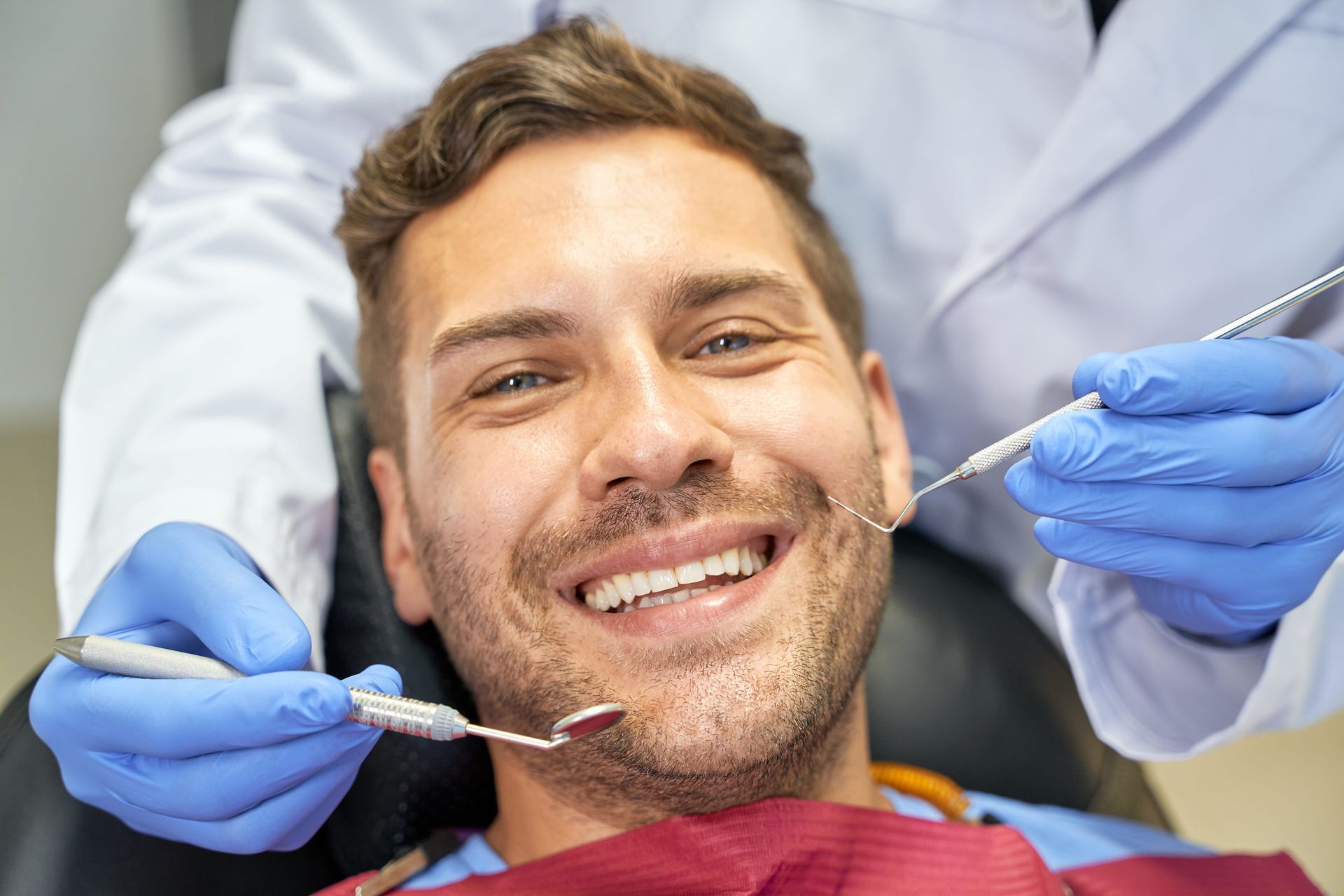
Conclusion
In conclusion, regular dental check-ups are imperative for maintaining good oral health. By prioritizing oral hygiene and scheduling routine visits to your dentist, you can not only prevent gum disease and tooth decay but also catch any potential oral health issues in the early stages. Early detection is key in preventing more serious problems that may result in tooth loss and impact your overall health. Expert advice from dental professionals ensures that you are equipped with the knowledge and tools necessary to maintain a healthy mouth and prevent oral diseases. As the saying goes, a healthy mouth leads to a healthy body. So, make it a habit to visit your dentist regularly or consult on The Scottsdale Dentist and enjoy the benefits of improved overall health and well-being. Don't wait until it's too late – invest in your oral health today for a brighter and healthier tomorrow.
